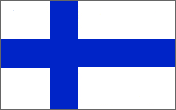Any time I use the wrong definite article my German wife will loudly bark “NEIN!” It’s hot but educational.
Hey, is your wife free later? I could really use some German lessons. I mean German less- I mean German- I mean Ger- I-I-I mean light domming.
I’m not sure any of those french phrases ever translate to “the”
You’re right, they don’t.
The ones beginning with “d” generally translate as “of the,” while the “à” ones generally translate as “to the” or “at the.”
French has three words that mean “the”: “le” (masculine), “la” (feminine), and “les” (plural).
Right yeah I know. I was just allowing for some potential context I wasn’t aware of
Russian:
Der, die, das 👏👏…
Wer, wie, was👏👏
Wieso, weshalb, warum? 👏👏
Wer nicht fragt, bleibt dumm!
1000 tolle Sachen
Die gibt es überall zu sehen
Manchmal muss man fragen
Um sie zu verstehen
I’m trilingual and two of the languages don’t even have this bs lol (Mandarin, Japanese, English).
deleted by creator
I’m learning japanese right now, it has a very Lego-like structure for creating words and sentences that allows you to be very specific about things which is pretty cool.
Homophones are waaaaay more common in Japanese than in English though.
If you wanna blow your mind even more, look into hungarian, finnish, turkish or georgian. These are some very agglutinative languages, much more than japanese. If i was you i would skip hungarian and georgian tho because the grammar is unhinged but for what they are finnish and especially turkish are pretty nice.
You can express just about everything in any language. It just sometimes takes more words.


Edit: Shit, I mistook the original meme as about grammatical cases instead of articles. I think Finnish has 15 cases. 🤔🫣
deleted by creator
Wait i thought finnish didnt have articles? I dont know that much about it, im just hungarian(same language family) and also live in sweden which is of course next to finland. In hungarian there are articles tho(the grammar is extremely strange around them, we literally conjugate for them) but i heard finnish doesnt have them.
Wait i thought finnish didnt have articles?
Journalism exists in Finland too.
Yeah we don’t.
In Norwegian (or rest of scandinavistan, as far as I know) we don’t even use “the”. Suffixes are used instead.
Fish = Fisk
The fish (single) = Fisken
The fish (plural) = FiskeneSo, is there no differentiation between “a fish” and “the fish”?
A fish - en fisk
The fish - fiskenEnglish would be a lot more fun if they did the same as us.
A fish
Fisha
A man
Mana
A book
Booka.
Sounds like Final Fantasy potions/spells
this is a relly gard thing to understand for natives of languagea without articles, “some fish” vs “this particular fish”
Proud lad from Jutland here: in our dialect we do use “the” in “æ”.
The fish = æ fisk
French English du of the de l’ of the de la of the des of the au to the / at the à l’ to the / at the à la to the / at the aux to the / at the French has multiple options because it has 2 genders for nouns “the chair” = “la chaise” (female), “the bench” = “le banc” (male), and it changes the article when you’re talking about multiple things vs. single things “the benches” = “les bancs”.
So, French really has 3 versions of “the”: “le” (male, singular), “la” (female, singular), “les” (female or male, singular).
But German… ugh. There’s a 4x4 matrix of German words for “the”. German had the wisdom to come up with a neuter gender, but the insanity to not apply it to most common objects. Somehow a knife is sexless, a spoon is male and a fork is female. Making it worse, the version of “the” you use for an object depends on whether the object is the subject of a sentence, the object of a sentence, the indirect object of a sentence or possessive. I don’t know if it’s better or worse (but I’m leaning towards worse) that they re-use a lot of these articles at other spots in the matrix, so “der” is used for male objects in the nominative case, female in the dative case, and plural objects in the genitive case.
Case Masculine Feminine Neuter Plural nominative der die das die accusative den die das die dative dem der dem den genitive des der des der Take “Stein” which is stone, not beer glass. If you’re an English speaker and are used to adding an “s” to make something plural, and you see “Der Stein” and “Des Steines”, you might think that the version with the “es” is the plural, right? Nope, the plural of “Der Stein” is “Die Steine”. “Des Steins” is for the possessive case. You’d use “Der Stein” for “The stone is heavy”, but if you want to say “The weight of the stone is high” you have to switch to “Des Steins” – and to add another twist, sometimes it’s “Steines” because of reasons.
*(female or male, plural)
Your matrix is correct, op errored on the neutral branch with “den”.
él la los las
Ellos ellas
Eso esa
Esos Esas.
English is schizo, but “the” is actually a very nice simplification, and It hardly impacts the communication.
…
ithe hardly impacts …I could see the value in changing the article if the noun itself didn’t change. For example, if Spanish said “la casa” for singular and “las casa” for plural. Then the article would be all you need to know if something is plural or singular. But, every language I’m aware of (which isn’t all that many) changes both the article and the noun. Using “the” in English removes this unnecessary redundancy. But, English is ugly in that whether you add an “s” for plural or “es” seems somewhat arbitrary.
Spanish is redundant. One house is “la casa”, several are “las casas”. It pluralizes both articles and nouns.
Also, like English, nouns are pluralized with several suffixes, but the rules are very clear. Any Spanish speaker can pluralize correctly nouns they’ve never seen before, none of that octopi/octopuses, virii/viruses weirdness.
Octopodes.
It’s Greek-based, not Latin. English often tries to keep certain rules about loan words from other languages. So, the plural of “alumnus” isn’t “alumneses” but “alumni”. It also mostly keeps the spelling of loan words, which causes all kinds of problems when that spelling is very different from English spelling. For example, “voila” is so different from how someone would spell it in English that a lot of people write “wala” because they don’t know French.
But, I agree that other than having gendered nouns, Spanish is a much more sensible language than English. It does have its quirks though, like “si” vs “sí”, “te” vs “té” or “él” vs “el”. I get that those are to distinguish homonyms, but are they really necessary? Words like “cara” and “sierra” exist and it’s just like any homonym in English. Spanish also has silent letters like “h” so “errar” and “herrar” are pronounced the same but written differently. Also, “y” and “ll” are often pronounced the same way, and many Spanish speakers can’t differentiate between “b” and “v”.
Despite being theoretically most correct, octopodes is least correct in English because it doesn’t actually matter what the root of a word is if everybody uses it differently.
Yes, that’s what makes it so good. :)
Spanish (and I don’t think French) doesn’t have that many words for “the”. It’s just “El” and “La”.
I suppose “los” and “las” as well… Sorta. But that’s just plural “El/La”. Which might sound unnecessary but having everything match plurality and grammatical gender does clear up ambiguity sometimes.
Eso(s)/Esa(s) mean “that/those”
The Inquisitor!
Spanish (and I don’t think French) doesn’t have that many words for “the”. It’s just “El” and “La”.
I suppose “los” and “las” as well… Sorta. But that’s just plural “El/La”. Which might sound unnecessary but having everything match plurality and grammatical gender does clear up ambiguity sometimes.
Eso(s)/Esa(s) mean “that/those”
Mfs just explained to me my native language.
They teach them as different, is important to know they are not the same or else you use a singular when you should use a plural, or viceversa.
“The” can be singular or plural, femenime or masculine.
I think I replied to the wrong comment sorry. I meant to reply to someone who replied to you.
And all I really wanted to say was Eso/Esa/s isn’t really fair as a “the” translation. I know the meme is to make the languages look complicated.
Yorkshire:
T’ (Glottal stop sound)I’m not sure it’s kosher to count
à laandde laas separate definite articles.I don’t speak French but from my understanding, they fulfill the function, cases in German do. But than again you could add “to the” and “of the” in English
Strangely,
leitself is missing from this list, probably the most obvious definite articleThe meme’s author was le tired.
More like: by the, of the, for the, to the, belonging to the etc.
Yeah I was gonna say, those aren’t the same at all. English has way more prepositions than French.
I don’t even know a correct way to translate ‘the’ to my language, it doesn’t really exist
Me speaking a language which uses quotes instead of the

That kid is about to ruin someone’s microwave lunch.
You guys have articles?





















